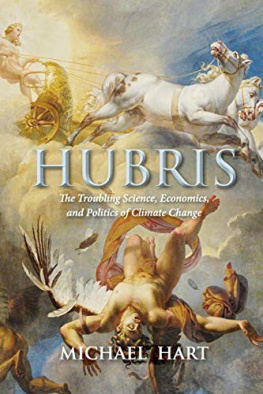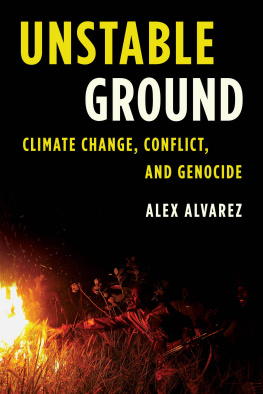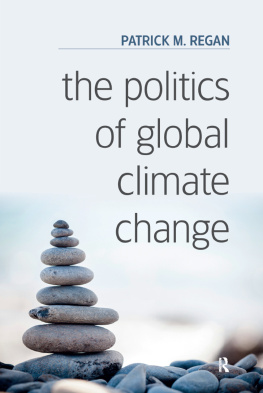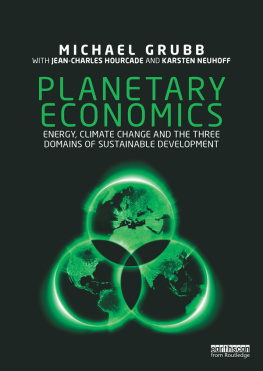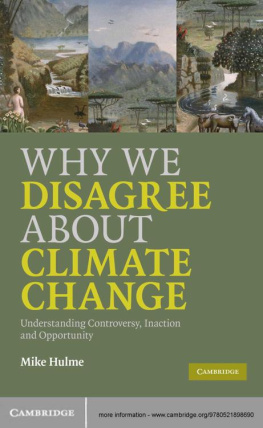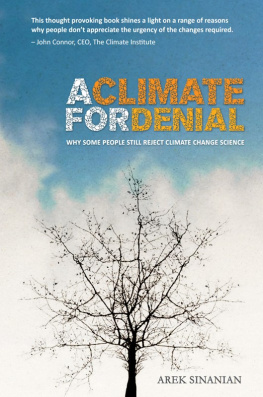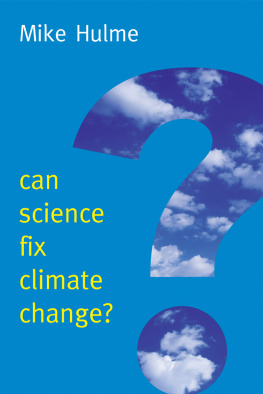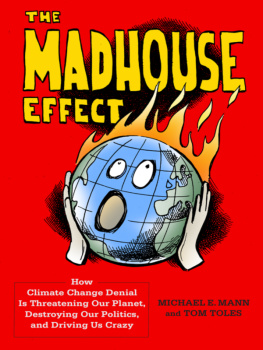Michael Hart - Hubris: The Troubling Science, Economics, and Politics of Climate Change
Here you can read online Michael Hart - Hubris: The Troubling Science, Economics, and Politics of Climate Change full text of the book (entire story) in english for free. Download pdf and epub, get meaning, cover and reviews about this ebook. year: 2015, publisher: Lulu.com, genre: Politics. Description of the work, (preface) as well as reviews are available. Best literature library LitArk.com created for fans of good reading and offers a wide selection of genres:
Romance novel
Science fiction
Adventure
Detective
Science
History
Home and family
Prose
Art
Politics
Computer
Non-fiction
Religion
Business
Children
Humor
Choose a favorite category and find really read worthwhile books. Enjoy immersion in the world of imagination, feel the emotions of the characters or learn something new for yourself, make an fascinating discovery.
- Book:Hubris: The Troubling Science, Economics, and Politics of Climate Change
- Author:
- Publisher:Lulu.com
- Genre:
- Year:2015
- Rating:5 / 5
- Favourites:Add to favourites
- Your mark:
- 100
- 1
- 2
- 3
- 4
- 5
Hubris: The Troubling Science, Economics, and Politics of Climate Change: summary, description and annotation
We offer to read an annotation, description, summary or preface (depends on what the author of the book "Hubris: The Troubling Science, Economics, and Politics of Climate Change" wrote himself). If you haven't found the necessary information about the book — write in the comments, we will try to find it.
Michael Hart: author's other books
Who wrote Hubris: The Troubling Science, Economics, and Politics of Climate Change? Find out the surname, the name of the author of the book and a list of all author's works by series.
Hubris: The Troubling Science, Economics, and Politics of Climate Change — read online for free the complete book (whole text) full work
Below is the text of the book, divided by pages. System saving the place of the last page read, allows you to conveniently read the book "Hubris: The Troubling Science, Economics, and Politics of Climate Change" online for free, without having to search again every time where you left off. Put a bookmark, and you can go to the page where you finished reading at any time.
Font size:
Interval:
Bookmark:
| Hubris: The Troubling Science, Economics, and Politics of Climate Change Michael Hart |
| Compleat Desktops Publishing |
| 2015 |
Michael Hart, 2015
All rights reserved. This book or any portion thereof may not be reproduced or used in any manner whatsoever without the express written permission of the publisher except for the use of quotations in a book review or scholarly journal.
First printing 2015
ISBN 978-0-9949038-0-8 Paperback edition
978-0-9949038-1-5 Digital edition
978-0-9949038-2-2 PDF edition
Compleat Desktops Publishing, a division of
Compleat Desktops R&D Inc.
27 Saddle Crescent
Ottawa K1G5L4
Canada
Cover design: Edward Hart, based on The fall of Icarus, 1891, Ceiling mural by Merry Joseph Blondel (Louvre Museum, Paris), photo by Marie-Lan Nguyen, Wikimedia Commons
Book design: Edward Hart
Author services by Pedernales Publishing, LLC
www.pedernalespublishing.com
Set in Book Antiqua and Calibri
Figures: derived from sources as indicated.
For more information about this book, the author, and other titles: Omniadisputanda.com or Compleatdesktops.com
Special discounts are available on quantity purchases by corporations, associations, educators, and others. For details, contact the publisher at the above listed address.
The hubris of reason can acquire characteristics that are dangerous to humanity itself. Science, moreover, is unable to work out ethical principles; it can only accept them and recognize them as necessary to eradicate its potential pathologies. This does not mean restricting scientific research or preventing technology from producing the means for development; rather, it consists in maintaining vigilance about the sense of responsibility that reason possesses in regard to science, so that it stays on track in its service to the human being.
Joseph Ratzinger,
Pope Benedict XVI
Address to the Congress held on the
10th Anniversary of Pope John Paul IIs Encyclical
Fides at Ratio, Rome, October 16, 2008.
There is no great harm in the theorist who makes up a new theory to fit a new event. But the theorist who starts with a false theory and then sees everything as making it come true is the most dangerous enemy of human reason.
G.K Chesterton
The Flying Inn (1914)
| Contents |
1. The Problem Stated
2. Science and Public Policy
3. Science and Its Pathologies
4. The Science of Anthropogenic Climate Change
5. The Science and Politics of the IPCC
6. Secondary Evidence and Impacts
7. The Science is Not Settled
8. The Limits of Mitigation Strategies
9. The Economics of Climate Change Policy
10. Baptists, Bootleggers, and Opportunists
11. Building Global Consciousness
12. National Interests vs. Global Norms
13. Rhetoric vs. Reality
14. Immorality Pretending to Virtue
| Preface |
Imagine a movement so bent on achieving its political objectives that it is willing to corrupt science to meet them. Imagine governments around the globe, first adopting and then promoting this official science for more than two generations. Imagine that they are willing to use their regulatory power to implement a massive program of social engineering in order to save the planet. Imagine the United Nations leading this movement and insisting that a global effort is required. Imagine the movements leaders believing that people around the globe must change their eating, heating, cooling, lighting, toilet, transportation, manufacturing, entertainment, even housing habits and reject values that are critical to their prosperity, happiness, and welfare, confident that humans can adapt and revert to simpler, more primitive, more local lifestyles, have fewer children, and embrace lives presumed to be more in harmony with nature. Imagine thousands of scientists engaged at public expense in developing a convincing rationale for this unprecedented project. Imagine that these scientists are willing to compromise their integrity in pursuit of the role of a single factor that they insist controls the most complex and chaotic earth system, a molecule carbon dioxide that is literally the building block of all of life. Imagine that they believe that by reducing its miniscule .04 percent presence in the atmosphere, the planet will cool and climate will stabilize at an optimum level, a level seen only in micro-seconds of geological time. Imagine scientists who dismiss the work of hundreds of their colleagues and believe that their work must be suppressed. Imagine a scientific movement dominated by greedy grant farmers and cheered on by the media, insisting that there is no further need to study the science and that governments need to start implementing its preferred policy of worldwide social engineering.
Imagine that many leaders of this movement believe that the worlds population needs to be thinned down to a billion people within a generation or two. Imagine that some of the movements most revered leaders, even as they advocate that ordinary people must curb their consumption and live simpler lives, pursue lifestyles that consume more energy and other commodities in a year than an ordinary family of four would need over its lifetime. Imagine a movement whose leaders habitually dissemble and mislead and justify this on the claimed greater good they are pursuing. Imagine politicians, civil servants, scientists, activists, and the media flying from one exotic location to another as they plan what must be done to coerce changes in our lifestyles, even to the point of sacrificing human freedom and democracy.
Most thoughtful people would conclude that only Hollywood could come up with such a bizarre plot. A little more thinking, however, and they might connect the dots. There is such a movement, and it has demanded our attention for more than thirty years. It has devoured billions of dollars in public money and has inserted its menacing tentacles into every aspect of modern life. The UN and all its organs are the leading force behind it, but most governments of the world support it in one way or another. Elites, the media, and even religious leaders, have embraced it, even though they seem poorly informed and ignore its demands while urging others to adopt sharply reduced lifestyles.
The public face of this science, climate science, is part of a worrying new trend: the emergence of official or consensus science. In this perversion of real science, policy becomes the goal of scientific enquiry rather than its result. Over the last thirty years and more, public policy has focused increasingly on dealing with risks to health, safety, and the environment. Much of that policy ostensibly relies on scientific findings. In their decision-making, governments increasingly look to scientists and have resorted to funding science that meets their political need for certainty. Consensus on controversial issues is critical to governments. Ever since Rachel Carson published Silent Spring in 1962, activists have stood ready to convince governments of all manner of risks to humanity and nature, and scientists have obliged by reporting findings that satisfy activist political needs. Once governments acquiesce, it is critical that scientists not undermine their decisions with awkward new findings. Public policy is not easily reversed. The result is a potential monster spewing out more and more regulations, presumably making us safer and healthier and safeguarding the environment, but also substituting social for personal responsibility, reducing freedom and choice, and creating an ever larger, more costly, and intrusive public footprint.
Next pageFont size:
Interval:
Bookmark:
Similar books «Hubris: The Troubling Science, Economics, and Politics of Climate Change»
Look at similar books to Hubris: The Troubling Science, Economics, and Politics of Climate Change. We have selected literature similar in name and meaning in the hope of providing readers with more options to find new, interesting, not yet read works.
Discussion, reviews of the book Hubris: The Troubling Science, Economics, and Politics of Climate Change and just readers' own opinions. Leave your comments, write what you think about the work, its meaning or the main characters. Specify what exactly you liked and what you didn't like, and why you think so.

